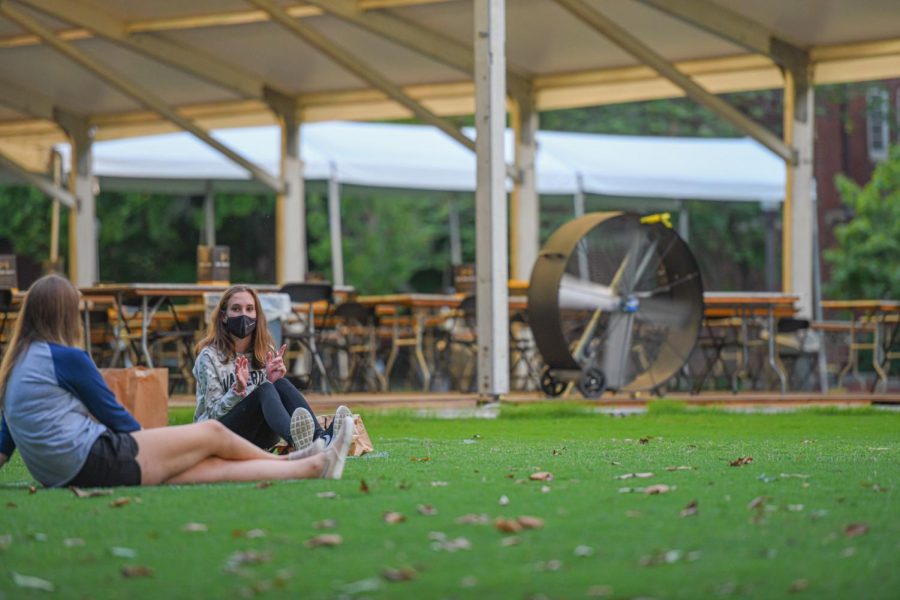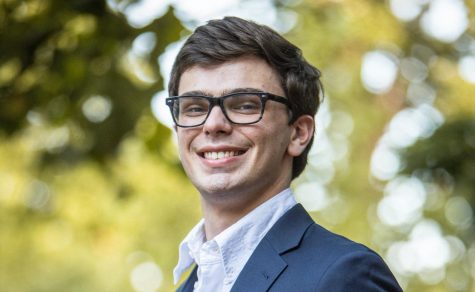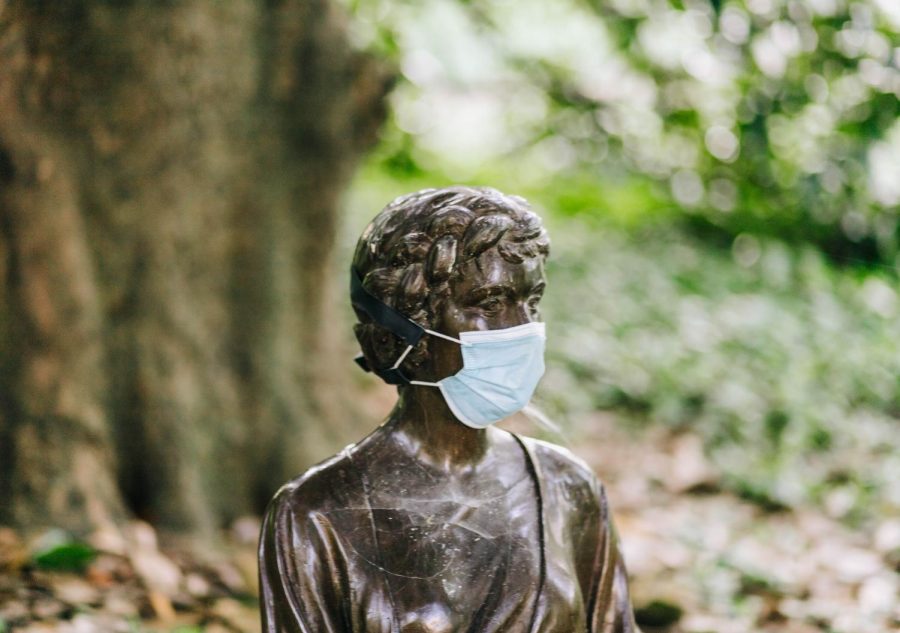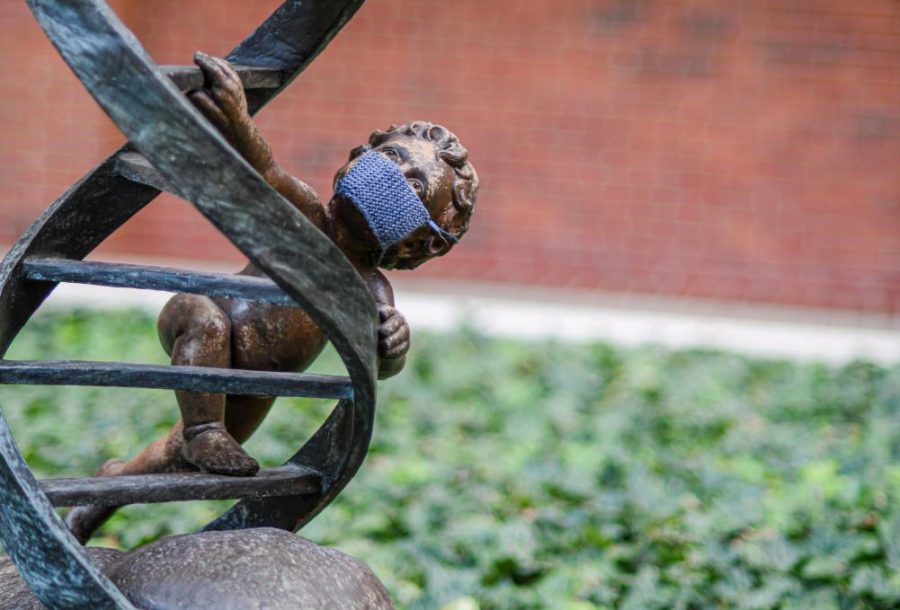Did Vandy really have the audacity to think they could conduct an in-person school year?
Leading up to the fall semester, it’s fair to say there was a substantial amount of skepticism amongst students regarding the possibility of an in-person semester amidst the pandemic. After an abrupt end to last spring’s semester and a number of other uncertainties surrounding the virus’ path, it was understandable.
Apparently, the skeptics were wrong this time. Was it a normal semester? Not even close. It was certainly a difficult semester for many students, and the university could have been more proactive in addressing their students’ concerns. Yet, given the state of the world, Vanderbilt’s administration should be lauded for trusting its students and giving us the chance to have some semblance of normalcy. They knew there would be rule-breakers, but they trusted that the student body would learn along the way and foster a safe campus.
Last fall, Vanderbilt was one out of only four of the nation’s top fifteen universities that invited all interested undergraduate students back to campus. This decision was not “an easy journey,” as expressed in a letter from Chancellor Diermeier. Despite it being easier to suspend in-person classes, Vanderbilt labored over how to make the fall semester feasible and ultimately sided with this more difficult and uncertain option.
Many schools frustratingly revoked their decisions regarding the fall semester with only days before the beginning of school. UNC Chapel Hill suspended all in-person classes and Columbia reduced on-campus housing from 60 percent of their students to only a select few. Vanderbilt committed to bringing students back to Nashville early, and stuck with it—even as other schools were challenged by outbreaks shortly after reopening.
Worth mentioning is the university’s commendable efforts to ensure student safety during the pandemic. Vanderbilt implemented a weekly testing program for the Fall 2020 semester and increased to twice-weekly testing for Spring 2021.Other universities in Nashville, like Belmont and Lipscomb, opted to only offer tests for symptomatic individuals and those designated by health services.
Vanderbilt’s protocols haven’t been perfect, but the school is attempting to learn from its mistakes and follow Centers for Disease Control (CDC) guidelines as closely as possible. Enforcement of social distancing policies could have been more consistent, and COVID-19 tests were not always entirely accurate, but policing a large student population and ensuring they all keep testing negative is a Herculean task.
As such, we should appreciate how Vanderbilt was able to, for the most part, avoid any major outbreak of the virus on our campus. Many professors claimed that in-person classes were a dangerous idea with little incentive. While it’s true that on campus operations will generate inevitable COVID cases, numbers remained reasonably low, with the student testing positivity rates peaking at 1.70 percent the week of Nov. 9-15, while Davidson County had an 8.5 percent positivity rate that same week.
The school accomplished what many of us wrote off as inconceivable. We were able to stay on campus for the semester without pausing in-person instruction, unlike many other schools.
It’s due to this success that Vanderbilt is able to invite us back for the spring semester. Towards the end of the fall semester, the number of undergraduate cases was steadily increasing and students were feeling burnt out: Vanderbilt was essentially saved by the bell. Now that the sheer uncertainty of returning to campus has waned, Vanderbilt should focus on rebuilding the social fabric of our community.
Ideas such as pods implemented by schools around the country could be a solution to the isolation that many students are facing. In-person interaction is an essential part of the college experience. While virtual activities allow for some needed relaxation, they cannot replace the fun of meeting new people on campus and running into friends in the library. There was a copious amount of virtual programming on Halloween, for example, but this did little to quell genuine loneliness of students.
If students continue to be restricted from meaningful social interaction, many will skirt the rules to do so anyway— human interaction is essential. On the other hand, the students that follow them will experience the same burnout from last semester. While we understand that this year is still “unprecedented,” if the enjoyable parts of college are stripped away, then Vanderbilt’s successful reopening doesn’t mean much.
However, increasing opportunities for social interaction on campus cannot come at the cost of risking the health of students, faculty and staff. The administration should continue to hone the testing program, especially in the face of the new COVID-19 variant, which has already been identified on college campuses. As this highly transmissible strain begins to sweep the nation, Vanderbilt should regularly report its on-campus quarantine capacity, the total number of students in quarantine and daily positive test results on its COVID-19 dashboard. Increasing transparency will increase student’s trust in the administration and, as we begin this new semester, allow us to evaluate the results of our actions and sacrifices in real time.
While there’s obvious room for improvement on the university’s part regarding student mental health, transparency and disciplinary action to briefly name a few, Vanderbilt does appear to recognize that its response to the pandemic hasn’t been perfect. After all, the university revised its twice-weekly testing program. It adjusted the configuration of the dining tents to allow for outdoor dining, studying and eventually fitness classes. And most importantly, the number of cartoon squirrels on campus seemed to decrease. Hopefully, university administration can continue to institute more good-faith efforts to accommodate student needs as we begin this spring semester.
Moving forward, Vanderbilt should once again be at the forefront of vaccination efforts at the university level. VUMC has already begun vaccinating eligible groups; however, as the vaccine becomes more readily available, the university should develop and inform students of its distribution plan. Princeton, for example, has already announced that it will host on-campus vaccination clinics whenever state guidelines permit. If our school fails to properly plan and inform the student body of said plan, then the progress and trust in administration gained from the fall semester will falter.
When we look back, Vanderbilt got some aspects of university life operating correctly, and other areas will require further improvement. However, it’s important to offer a “thank you” to Vanderbilt for taking a risk for its students when other universities were unwilling. It’s not exactly in our cynical DNA to express gratitude, but in spite of the constantly evolving, in-need-of-improvement nature of the previous semester, it’s a triumph that we were able to receive one at all.





